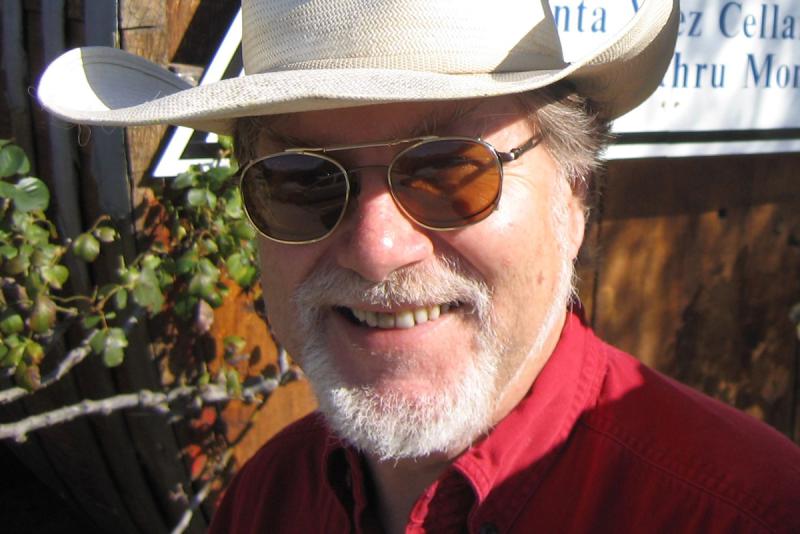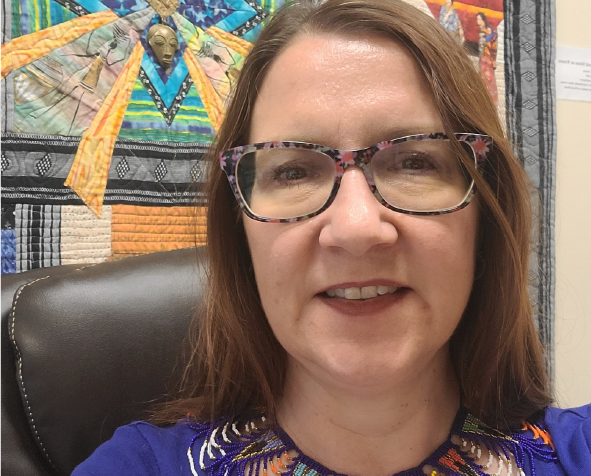Professor’s Retirement after 53 Years Evokes Fond and Vivid Tales of Prolific, Wide-Reaching Scholarship, Humor and Generosity

Professor Victor Castellani is retiring after 53 years and will be honored at a celebration April 22, 4-6 p.m. in the Renaissance Room of Mary Reed Hall. Castellani began teaching at the University of Denver in 1971 and has taught College of Arts, Humanities & Social Sciences (CAHSS) Latin, Greek and general education classes. He has authored hundreds of papers and review articles primarily on classical and antiquarian subjects and reviewed dozens of books on diverse topics. He has spoken at universities and convention centers in 35 countries on subjects ranging from literature and the arts and political and social history to wine regulation. His wide-ranging accomplishments include serving as Chair of the Department of Languages & Literatures (now Languages, Literatures & Cultures) for 21 years.
But Castellani’s rich legacy and lasting impact is best captured by those who knew him well. The CAHSS newsroom asked several such faculty members to share a few of their many fond and vivid anecdotes about how working with him over the years enriched them professionally and personally.
Chad Leahy, associate Spanish professor and Chair of the Department of Spanish Language, Literature & Cultural Studies, called Castellani “a beautiful, warm soul who will be deeply missed on campus,” He noted that Castellani hired Leahy about 10 years ago. “I will always be grateful for his role in getting me here,” he said. Leahy likewise remains “tremendously grateful for Castellani’s help with translating a chapter of a rare 16th century treatise in Latin on Spain’s preeminence over France and the leadership he provided to DU’s chapter of the prestigious academic honor society Phi Beta Kappa. “He served in every role on the executive committee, in the annual selection of new initiatives and distinguished himself as chapter president by ensuring that the annual banquet was always memorably lavish.”
According to Leahy, when former professors Miriam Bornstein and Oscar Somoza retired some years ago, the department hosted a retirement party in which faculty shared reminiscences and delivered short speeches. “But Victor did much, much more than that,” Leahy explained. “He came to the party having drafted an entire ode in Latin which he dramatically recited in Latin and in English translation. The text was moving, hilarious and brilliant, and I think the entire thing is extremely representative of Victor.”
Leahy fondly recalled Castellani’s weekly ritual of “drafting extensive notes on the diverse happenings of the department, college and university that would land in our inboxes every Friday. It was part of the rhythm of life in our department to read Victor's digest. In a group of about 40 full-time faculty, Victor even had the generosity to include a listing of upcoming birthdays. These weekly messages, true to Victor's style, were full of rich, often florid language, and a constant undertone of sometimes cheeky, sometimes dark, and always very human humor that made you feel like we were all in this together, department chair included. They offered a much-needed chuckle on a Friday afternoon when we were all otherwise exhausted and maybe overwhelmed.”
Leahy will never forget the elaborate dinner parties Castellani hosted in his home, “each course, matched with incredibly thoughtful wine pairings drawn from Victor’s personal, extensive store of rare vintages. Victor's dinner parties were and remain a thing of legend,” he said.
Daniel McIntosh, psychology professor and CAHSS Dean Emeritus was a student in Castellani’s first-year ancient literature class in 1983 and recalls being “incredulous and then amazed at his enthusiasm about topics such as the details of Achilles' shield. By the end of the course, he’d inspired us all to see the value of deep and contextual understanding and the joy of discovery of different ways of thinking. I also remember how much energy he put into helping us learn and think, and how he demonstrated why this mattered. He cared so much about us as students and the material he was teaching that I couldn’t help but become enthusiastic about both the topic and engaging in scholarship myself.”
McIntosh experienced that “same energy when I worked with him during his tenure as Chair of the Languages & Literatures Department in my role as a fellow department chair and as Dean of the College of Arts, Humanities & Social Sciences. To Victor, deep scholarly knowledge, student learning, concern for faculty and the application of the values and analysis of the humanities to academic leadership and all of life were paramount. His joy in sharing and applying insights and stories were contagious here, too. His passionate, intellectual, and multifaceted contributions across decades of engagement and service in the DU community make him a quintessential academic. It’s been a pleasure and an honor to learn from and collaborate with him, and I am among the many at DU who will feel his absence.”
Roberta Waldbaum, teaching professor of Italian and Anna Maglione-Sie Endowed Professor in Italian culture, Department of Languages, Literatures & Cultures, called Castellani “a brilliant researcher and scholar whose work aligned closely with mine and who has also been a very good friend. You could always talk with him. He’s one of those rare individuals who really listened and made everyone feel comfortable,” She added that Castellani was instrumental in creating the Italian minor and major programs and “a mainstay of our Phi Beta Kappa chapter here at DU.”
One of Waldbaum’s earliest memories relates to Castellani’s impressive wine collection. “I don’t know the exact number, but I would guess he has thousands of bottles,” she said. “He was an expert, taught classes in the community and was always searching out specific wines. When I was asked to do a translation for the Denver Art Museum in the 1980s for the exhibit “Circles of the World: Traditional Art of the Plains Indians” that they were holding in Genoa, Italy, I told Victor I was planning to attend. He was very supportive, but he gave me the task of bringing back a specific bottle of white wine from Liguria. I spent a lot of time looking for that wine,” she added, laughing.
Walbaum admired Castellani’s fascination with studying Attic vases and the iconography of Greek heroes and gods which he traveled to museums worldwide to pursue, along with the staggering volume and quality of the articles, papers, lectures and seminars he wrote and delivered, many of which focused on Attic vases.
She, too, will never forget those dinner parties. “He and his wife Cheryl, a wonderful cook, were amazing hosts and my husband and I were fortunate enough to be invited to dinners or late lunches involving wonderful food and wine. But the most interesting thing was the guests. I was there for dinner once where Victor had invited Chancellor Daniel Ritchie. He would include people from upper administration to new hires and assistant professors. The Castellanis were very generous and hospitable in that sense, the conversations were always fabulous and we were all so happy to be there.”





